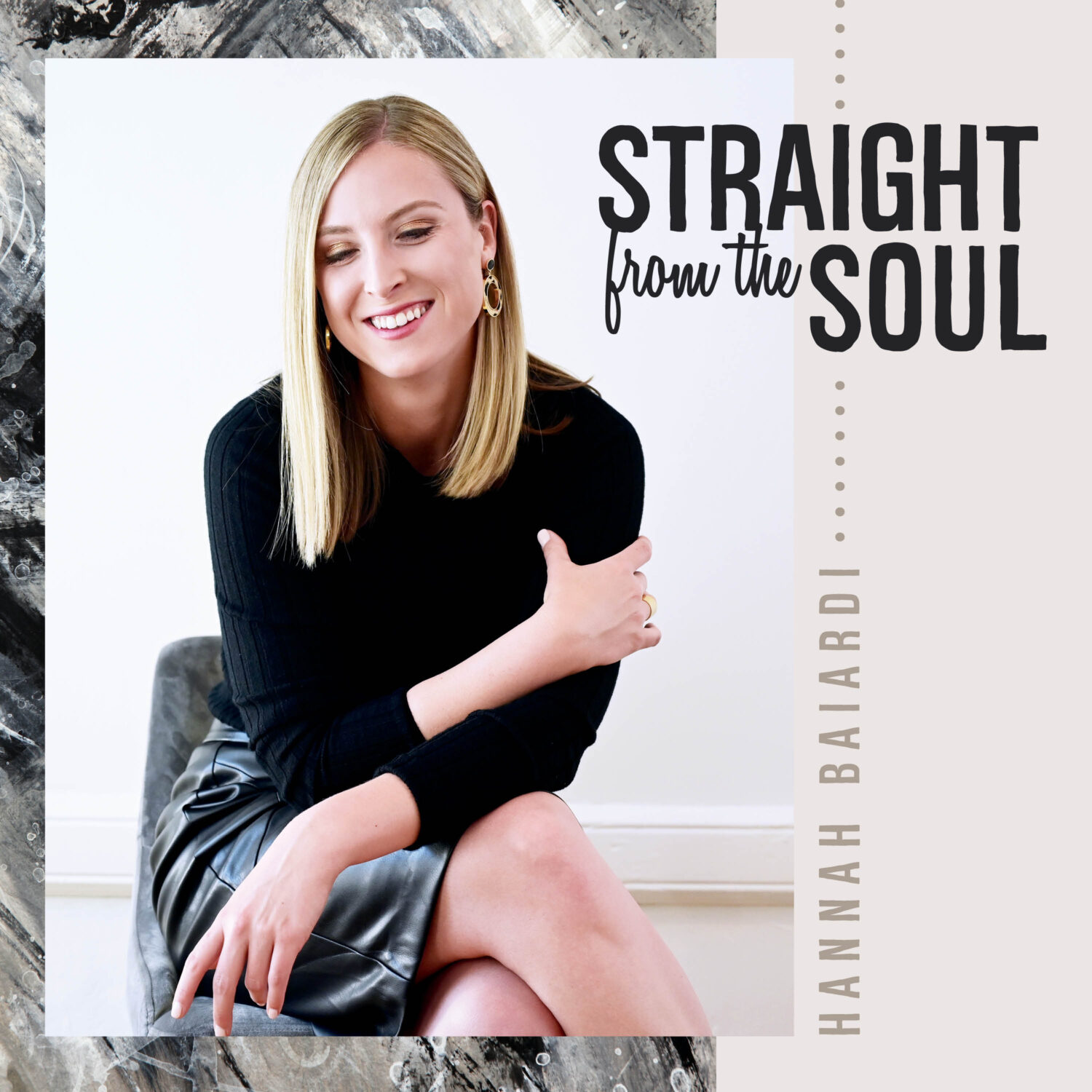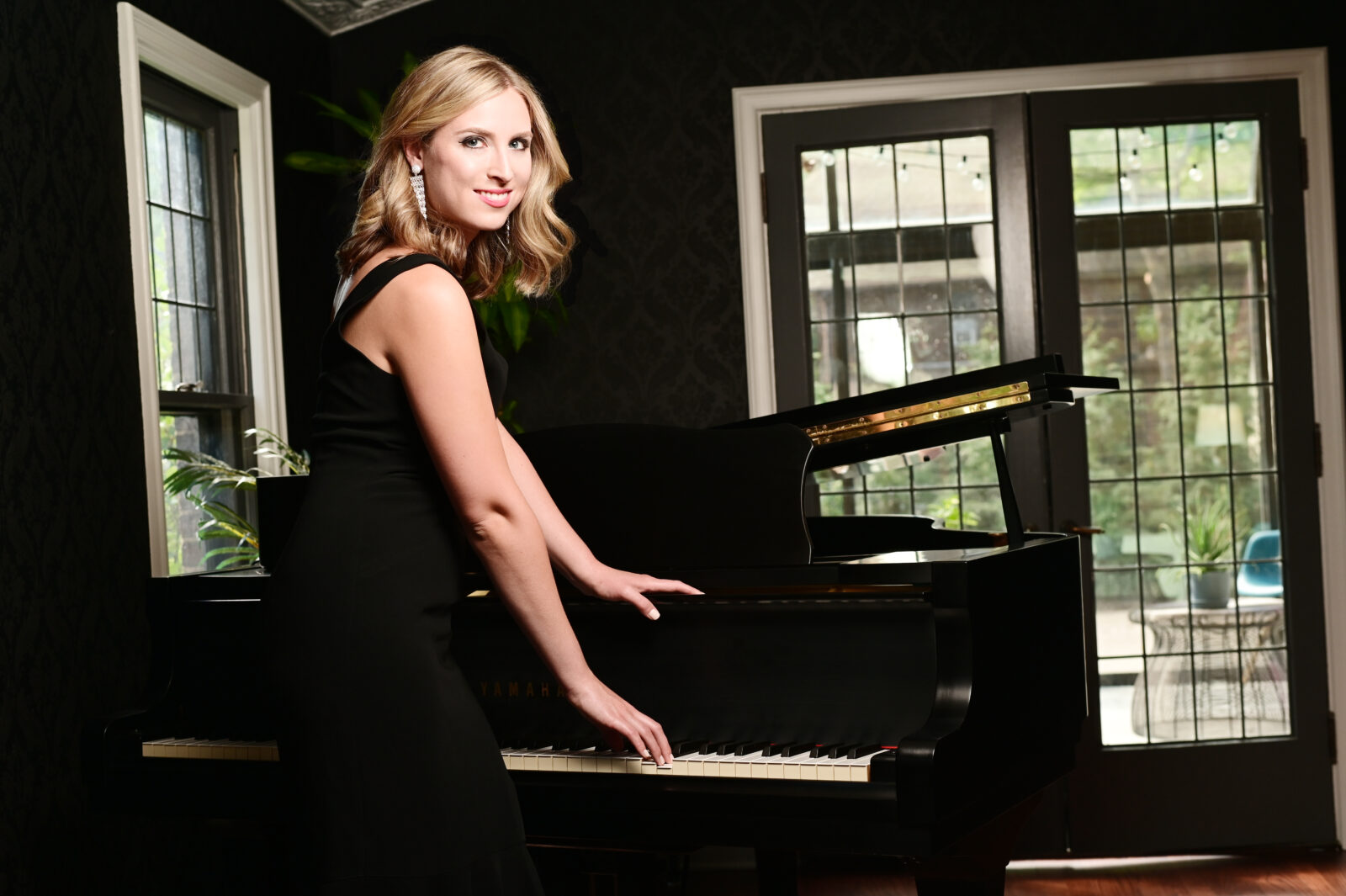The music of Hannah Baiardi’s new album comes “Straight from the Soul”

Image courtesy of artist
Though Hannah Baiardi’s sophomore release, Straight from the Soul bears a title that implies a sense of directness, of being blunt in its musical personality, it’s the title’s between-the-lines meaning that better describes what a listener can expect from the eight track LP. The Ann Arbor, MI pianist, composer, arranger, and singer has let artistry and emotional color plot the direction of her latest record. Consequently, the style and performance on Straight from the Soul is largely anything but direct, blunt, unwavering, or rigid. In fact, one could say the album is a listening experience propelled more by the idea of fluid instinct, than of any explicit sonic objective.
This kind of creative approach for crafting an album puts less a priority on the implications of pursuing certain genre hallmarks or a fixed listener demographic. And for an artist like Baiardi, who is starting to affirm a name for herself in a variety of creative circles as a bandleader, supporter, speaker, and curator, making her individual spirit the cornerstone really helps put and keep the focus on what the album offers, as being inherent to Baiardi, beyond the single aspect of being mostly her original music. While Baiardi’s talent with jazz piano makes the style of repertoire an easy choice for inclusion on Straight from the Soul, the two lone arrangements of non-original pieces – “The Windmills of Your Mind” and “The Summer Knows,” both composed by Michel Legrand and sung by Marilyn and Alan Bergman – drift closer to the light and bright fare of musical theater, a staple song form and style the Bergmans’. “Let Go” is a a co-write with David Magumba, who also provides vocals with Baiardi on the track but unlike the Bergman arrangements, it does incorporate a more relaxed, flowing melody and vocal performance style, which leans into Baiardi’s appreciation of jazz and soul-minded artistic flair.

Image courtesy of artist | Photo credit: Carlos Funn (Funn Photo)
The record’s remaining five tracks vary from each other to different degrees, through nearly every element: tempo, instrumental tonality, rhythmic hook, and vocal approach. Herein lies the aforementioned soul-driven fluidity that takes priority over ticking genre boxes. Baiardi isn’t shy about zig-zagging from polished but organic instrumentation in one piece, to the distinctive punch of programmed bass and drums for fueling the beats in the next. Additionally, Baiardi’s vacillation between sticking with more natural vocals on a song like “Si Tendre” and applying that of more sonically lush production values on a track like “Who Can Relate,” affirms even more boldly that Baiardi isn’t fixated on presenting herself in any pigeon-holing manner – especially for her voice, the aspect of the music which is most inherent to her.
Though one could dive into Straight from the Soul with cherry picking motivation and attempt to ratio the “percentage” of the album that leans toward familiar aspects of soft jazz, Bossa nova, R&B, and more (the classical guitar and rhythmically spoken lines in “Feel It” make it an easy target for this kind of labeling treatment) it would be a disservice to the record for its specific musical qualities to split the project up just because the world is currently run by playlists, curation, and an obsession with continuous variation. Topping off the importance of unity and cohesion, Baiardi makes sure to give clear and present attention to the piano, as Straight from the Soul is bookended by a crisp, upper octave melodic hook and a contemplative instrumental lined with satisfying jazz chords, in its opening and closing tracks respectively.
Even with the album tied together by these two complementary little bows, it’s about recognizing what brings and holds these songs together. It’s because Baiardi composed and arranged with such variety, made selections based on her emotions and artistic passions, that splicing it up or evaluating through such a lens would be a detriment. It becomes crucial to hear how each kaleidoscopic turn to the next song, and thus, another facet of Baiardi’s compositional range, maintains its connection to the rest. That is to say, Straight from the Soul is a demonstration and display of Hannah Baiardi as an artistically, musically, emotionally, and socially conscious person. And in a world filled with a myriad of solo artists all trying to show why they stand out playing any number of given styles, Baiardi’s decision to almost let the music exist as a secondary defining element behind the spirit of her very self, makes this album a cut above the rest as defining statement for who she is and what she can do.
Straight from the Soul is available now.
Find it on Bandcamp, iTunes, and streaming on Spotify.
Keep up with Hannah Baiardi through her official website and these social media outlets:
Facebook
Twitter (@Hbaiardi)
Instagram
YouTube
Bandcamp
Spotify
SoundCloud

Leave a Reply